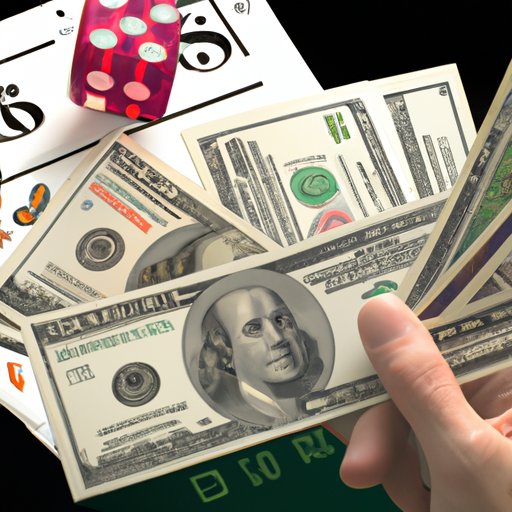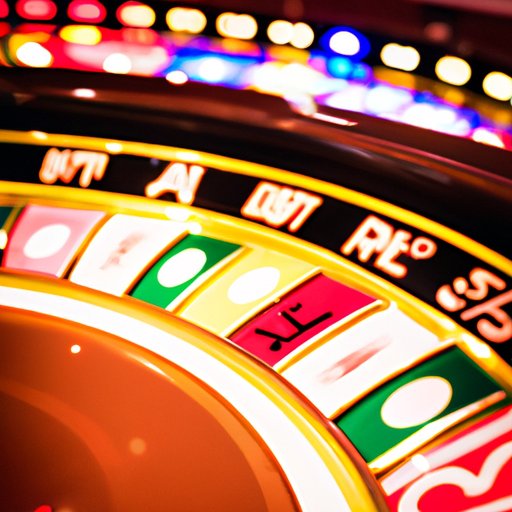Introduction
Are casinos rigged? It’s a question that has lingered in the minds of players and skeptics alike for decades. After all, the idea of a casino or gambling establishment manipulating games in their favor doesn’t exactly inspire trust. But what’s the reality behind these claims? Are casinos truly rigged against players, or is this just a myth perpetuated by conspiracy theorists?
In this article, we’ll delve into this question and explore the various factors that can contribute to rigged or unfair gambling practices. We’ll also examine the importance of fair gambling regulations and responsible gambling habits, as well as provide tips for improving your chances of winning at the casino.
Investigating the Myths: Are Casinos Rigged?
The notion that casinos are rigged or unfair has been around since the early days of gambling. And while there have been instances of casinos engaging in illicit activities – such as in the case of the infamous Stardust Casino scam – the vast majority of establishments operate with integrity and fairness.
That said, there are ways in which casinos may be able to tip the odds in their favor. This could include biased equipment, unfair house rules, or even the use of insider knowledge by employees. However, many of these claims lack concrete evidence, and the reality is that casinos largely rely on chance and probability to generate their profits.
Dispelling the Casino Conspiracy Theories: Facts vs. Fiction
Despite a lack of evidence, many conspiracy theories related to casino rigging persist. This could include claims of rigged roulette tables, the use of magnets to influence outcomes, or even secret codes used by dealers to manipulate games.
Experts, however, have extensively debunked many of these theories. For example, while roulette tables may develop biases over time, these are typically corrected or replaced to ensure fair outcomes. Similarly, the use of magnets or other cheat devices would be easily detectable by regulators and pit bosses.
Why, then, do these theories persist? One possibility could be a primal human need for explanation and control. Gambling outcomes are inherently uncertain, which can be unsettling to some players. Conspiracy theories may thus provide a sense of perceived control or understanding in an otherwise unpredictable environment.
From House Edge to Fair Odds – Understanding the Casino’s Advantage
It’s common knowledge that casinos make money by earning a percentage off each bet placed – commonly known as the ‘house edge.’ While this may seem inherently unfair, it’s worth noting that almost all casino games have an element of chance, and the house edge is often central to maintaining these games’ integrity.
In many cases, casinos will also use fair odds to ensure that games remain unbiased. Blackjack, for example, uses a fixed set of cards, which are randomly shuffled for each new game. The house edge in this game is typically less than 1%, meaning players have a reasonable chance of winning in the long run.
At the same time, though, it’s important to recognize that fair odds don’t necessarily guarantee short-term success. Individual games can be volatile and unpredictable, and one bad run can easily wipe out hours of previous winnings.
The Psychology of Gambling: How Game Design Affects Your Perception
Beyond simple odds and probabilities, game design plays a significant role in how we perceive gambling outcomes. For example, the use of vivid colors, sounds, and reinforcing stimuli can make games more enticing and appealing to players.
At the same time, though, these elements can also make it difficult to differentiate between wins and losses. A string of small wins peppered with occasional losses may feel more exciting and rewarding than a consistent stream of losses, even if the net result is often the same.
Responsible gamblers must, therefore, be aware of these psychological factors and take steps to protect themselves. This could mean setting limits on gambling time or budget, or avoiding certain types of games altogether.

The Role of Regulations in Ensuring Fair Gambling Practices
One of the most critical components of fair and honest gambling practices is the regulatory environment. In most countries, gambling is heavily regulated, with oversight coming from government agencies or independent commissions.
These regulators play an essential role in ensuring that casinos operate honestly and transparently. This might include conducting regular audits of casino equipment, investigating player complaints, and imposing penalties on establishments that break the rules. By doing so, regulators can help protect players and maintain fair practices within the industry.

Interview with a Casino Manager: Behind the Scenes of the Big Business of Gambling
To get a better sense of how casinos balance profitability with ethics, we spoke with a seasoned casino manager. During the interview, they noted the various factors at play in running a successful gambling establishment, from managing employees to ensuring fair play.
They also emphasized the importance of maintaining a strong reputation within the industry. Not only can this help attract and retain customers, but it also provides a measure of protection against false accusations or legal challenges.

Demystifying the Odds: Understanding Your Chances of Winning at Casinos
If you’re looking to improve your chances of winning at the casino, there are some fundamental mathematical principles you should be aware of. This includes expected value, which takes into account the potential outcomes of any given bet.
Another vital factor to consider is probability, which refers to the likelihood of a specific outcome occurring. Probability can be used to determine things like the odds of winning in a particular game, as well as the payouts for different bets.
By understanding these concepts, players can make more informed decisions when gambling, and can avoid overspending or chasing losses.
Conclusion and Takeaways
So, are casinos rigged? While there have certainly been instances of unfair or illicit practices in the past, the majority of casinos operate honestly and transparently. By understanding the factors that contribute to fair gambling practices – such as regulation, probability, and responsible habits – players can enjoy the thrill of gambling while minimizing their risks.
Ultimately, whether you’re a seasoned gambler or a casual player, it’s essential to approach the casino with a spirit of caution and informed decision-making. With these tools, you can enjoy the excitement of gambling while staying safe and responsible.
